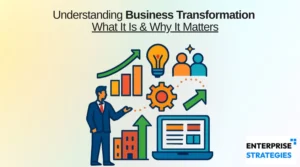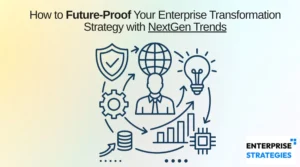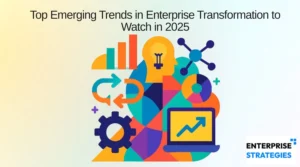The following is a transcript of an interview conducted in July 2014 with Andy Jankowski, Founder and Managing Director of Enterprise Strategies, discussing how to attract and retain millennial talent in the workplace.
Matt- Hello everyone, my name is Matt Godson, the President of Pivot. Joining me here today is Andy Jankowski, the Founder and Managing Director of Enterprise Strategies, a company focused on applying social tools and processes to solve enterprise communication, collaboration, knowledge management and productivity challenges.
Andy is also a future speaker at PivotCon this October on the topic ”They Don’t Want to Work for Us – Winning The Battle for Millennial Talent”.
Matt- Andy, Welcome
Andy- Thank you Matt, Pleasure to speak with you.
Matt- Thanks very much, so firstly what kind of challenges are your clients facing in attracting and retaining millennial talent?
Andy- There is a definite disconnect between what millennials are looking for in a company experience and what those companies are providing. When I say that, the operative word here is experience. The first thing you need to know about this generation is that they view everything as an experience whether it’s buying a car, spending time with family, volunteering for a non-profit or going to work every day, it’s all part of an experience.
So, imagine this mind set and then imagine walking into an old-school, cubicle-laden, technology-disabled corporate environment. It’s pretty much the opposite of the new adventure that’s being sought, so that’s one challenge.
Another primary challenge is miscommunication. The irony here is that these same large corporations actually have some characteristics that millennials are looking for. A great example of this is stability, this generation has grown up watching their parents lose their jobs due to company downsizing, they have seen their parents unable to find jobs due to the economy. They are looking for companies that are stable and dependable – sort of a platform for their lives so that they can go off and have new experiences. And it’s a great paradox because these companies are thinking, “wow! They don’t want to work for us, we are the dinosaurs, we are old — when actually they’ve got a lot of qualities that these individuals are looking for. So it’s definitely a miscommunication and the fact that these companies not taking the time to understand this generation fully.
Matt- What’s the long term implication of these shifting patterns on society, do you think?
Andy- Well, corporations are going to be forced to change. You know, what companies are experiencing right now is really the actual manifestation of the whole digital disruption that everyone is talking about. Let me explain that a little bit – so, without new talent and the ability to attract and retain new employees at a reasonable cost, the game changes in favor of the employers who are really getting it. You start to see stable small and midsize companies gain ground quickly. But there is a broader implication.
I think your question is more around what the societal changes will be. I think we are going to be seeing a couple of things – One: a generational shift in wealth and as a result of that, a shift in values. So millennials already have a different set of core values than many other generations before them and this shift of wealth is going to enable the media, the government and businesses to start focusing on these values, which will of course enable societal change.
Matt- Its very interesting, so how are major employers adjusting to ensure that they remain competitive for top talent?
Andy- Well, one thing that has happened which has been very important is a change in marketing. If you want to attract and retain this generation you have to speak to their values, you have to speak in a language that they understand and on the channels that they are listening to. You need to talk about stability, talk about life being more than just work, talk about life as an experience, talk about “giving back” as top of the agenda, allow flexible work arrangements and enable technical enhancement.
Now, the companies that are really starting to catch on and really take advantage of this the new generation, and all the talent that they have to offer, are picking one or two or three of these areas and then they are starting to change their marketing, make the investments in technology and – this sounds really boring – business process reengineering – making actual changes to the processes inside their company so that they can attract and retain the talent.
Matt- Can you give any specific examples?
Andy- Well, the one that always comes to mind and is talked about the most is Google – talk about creating an experience – the free travel insurance that they offer, the free legal aid, the free food, having treadmill desks in the office, having access to bicycles on campus. If you’re viewing life as a journey – if you’re viewing life as an experience, they’ve pretty much nailed it – they come at it from a different perspective. Now, that said, not every company has to be Google – so another organization that you may not be thinking of is Saint Jude’s Children’s Research Hospital. I didn’t think of them initially, but they have a ton to offer. First of all, their cause and second of all they are not a traditional business structure – there is a lot of flexibility. In recent surveys, millennials ranked the hospital as one of the most desirable place to work in 2013 and 2014.
One company that I’ve had experience with that’s not caught up in the media hype yet but I think you are going to see people talking about Allianz Global Assistance. So this is a company that when you go in and buy a new car and you opt for roadside assistance, this is the company that provides it; if you’re the person who’s going to go hiking with the Sherpas in Nepal, this is a company that will provide you with insurance and get that helicopter in there if you need medical assistance. It’s a different type of company – their messaging is based on a journey. Life is a journey, Life knows no bounds, their mission and their vision is to help people anytime anywhere. That message and those values match perfectly with the millennial generation.
All of these companies and the companies we haven’t mentioned are “work in progress” but they all are very well positioned to take advantage of the value that this generation has to offer.
Matt- Finally, what advice would you give to an organization concerned that its losing the battle to engage with its millennial employees?
Andy- I would recommend three things-educate, invest and communicate. For education you need to start with your management and educate them on this generation – their value and their values – the value that they can provide to the workplace with different perspectives, and of course their values. Talk to them about the best way to communicate with them, to respect them, to provide a workplace in an organization that they are interested in. Talk to your management about the more complex changes that can be made to attract and retain talent.
Then you need to invest, you know you need to make changes, even if it’s just starting with one particular area of your company and undertaking a small pilot – either your marketing, your technology infrastructure or the way you communicate your products and services. It all starts by making that investment and starting that change.
Finally communicate. These changes are great but if no one knows that they are being made they have little value, so let your employees know, let your prospective employees know and let the public know what you doing.
Matt- Andy, thank you so much for your info today. It was been pleasure speaking with you and I look forward to continuing the conversation in October.
Andy- Pleasure talking to you as well. I appreciate your time and more great discussions to come.




